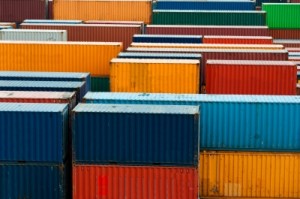 Foreign shipping lines and other port stakeholders in the Philippines are starting to use GoFast, the online system for returning empty boxes to off-dock container yards.
Foreign shipping lines and other port stakeholders in the Philippines are starting to use GoFast, the online system for returning empty boxes to off-dock container yards.
Four foreign liners are already doing a dry run and “live” use of the system, while seven others are reviewing their preparations for their own dry run, according to Leo Morada, chief executive officer of Cargo Data Exchange Center (CDEC), in a presentation at the recent Chamber of Customs Brokers, Inc. 25th National Assembly.
Shipping lines part of the dry run are Namsung, Yang Ming, RCL and Korea Maritime; those in the review stage are Wan Hai, “K” Line, APL, Maersk, MCC Transport, CK Line and Soriamont.
GoFast is an online reservation and appointment system for empty container returns that interconnects all stakeholders directly involved in the activity, including shipping lines, truckers, customs brokers, and container depots. Owned by the Association of International Shipping Lines (AISL), the platform is the group’s contribution to the long-term solution to the problem of cargo accumulation and congestion at Manila ports.
CDEC, which specializes in technology solutions for the trade, transport, and logistics sectors, was tapped to develop and implement the system.
Morada said that while mandatory to AISL members, GoFast is still being gradually implemented. “The focus right now is to ensure GoFast system processes are aligned with current business processes,” he later told PortCalls in an email.
Moving forward, CDEC intends to implement the platform in outports, as some liners think “they will become more efficient if returns included those outside Metro Manila,” Morada explained.
Aside from shipping lines, a growing number of other stakeholders is preparing to use GoFast by starting to make advance payment deposits to their prepaid accounts, Morada said.
Morada said “GoFast is designed to introduce visibility and new efficiencies for stakeholders on empty container monitoring outside the port,” in the process helping to eliminate extra costs that arise from unpredictable returns.
These added costs, Morada noted, are those incurred by customs brokers and other stakeholders when they make phone calls or text messages regarding the availability of a shipping line delivery order; follow up availability of a return depot; confirm return time for an empty container; or retrieve the equipment interchange report (EIR) printout from the truck driver. Customs brokers also need to pay P150 to reprint a lost EIR, while some pay a “facilitation fee” of almost P2,000 to find space in a depot.
Problems with returning empty containers worsened during the Manila port congestion last year, often leading to the diversion of truckers to depots not assigned to them by shipping lines. This compounded fuel costs and detention charges for truckers and other stakeholders as they failed to return the empty container during the agreed period of time.
Through GoFast, delivery orders can be notified online and printed, depot space is made visible, the status of trucks can be viewed online, and the EIR can be printed at no extra cost, Morada said. – Roumina Pablo
Image courtesy of franky242 at FreeDigitalPhotos.net









